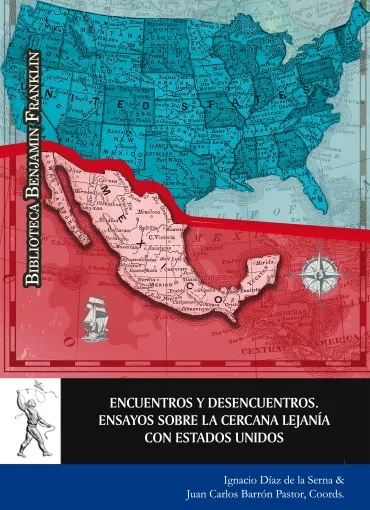Summary:
The United States is a country that has welcomed many people from different parts of the world, with their respective cultures, idiosyncrasies and languages, resulting in a country in which diverse ethnic, social, and religious groups are mixed. However, this plural nation has not been built without difficulties. The United States is also a territory of exclusion, of racism, of xenophobia; Chinese, Irish, Germans, Jews, Italians, Latinos of various origins, were seen and judged as inassimilable... until they were assimilated.
Herein lies the great paradox of that country, which has a fragmented social fabric, but at the same time is endowed with a great capacity for integration.
The complex and often tormented relationship between the hegemon of our time and its southern neighbor, Mexico, is well known. Both countries share a border of almost three thousand kilometers; a border which, by the way, is the busiest in the world. Currently, the American population of Latino origin outnumbers the African-American population.
Undoubtedly, the destiny of both nations, whether they wish it or not, has been interwoven for at least two centuries.
This book is the result of the academic collaboration agreement between the Instituto Franklin-UAH and the Centro de Investigación Sobre América del Norte of the Universidad Nacional Autónoma de México (CISAN-UNAM). It includes a collection of essays on different topics —society, economy, political system, culture and religion—, written by researchers from CISAN-UNAM. This multidisciplinary mosaic of texts seeks to provide the reader with some keys to better understand the close distance that exists between those two countries.
Although from different perspectives, there is something that certainly links the Instituto Franklin-UAH and CISAN-UNAM: their deep interest in the United States as an object of reflection and study.
Ignacio Díaz de la Serna
Doctor en Filosofía por la Facultad de Filosofía y Letras de la UNAM. Es investigador titular C de tiempo completo del Centro de Investigaciones sobre América del Norte de la UNAM y miembro del Sistema Nacional de Investigadores nivel III. Sus líneas de investigación son Filosofía de la cultura y Filosofía política.
Juan Carlos Barrón Pastor
Juan Carlos Barrón Pastor trabaja como investigador en el área de estudios sociales y culturales y como Secretario Académico del Centro de Investigaciones sobre América del Norte en la Universidad Nacional Autónoma de México, además de ser profesor definitivo y expresidente de la Academia de Negocios Internacionales de la Facultad de Contaduría y Administración (FCA- UNAM)
Es Doctor en Filosofía del Desarrollo Internacional y Maestro de Investigación en Estudios del Desarrollo (línea de investigación sobre educación) por la Universidad De East Anglia (Reino Unido). Es egresado del seminario de Teoría Crítica del Colegio Birkbeck de la Universidad de Londres (Reino Unido), Diplomado en América del Norte (CISAN-UNAM), Diplomado en Teoría e Investigación Feminista (CEIICH-UNAM), y Licenciado en Administración (FCA-UNAM)
Ganador de la mención honorífica del premio Prose Award American Publishers in Education Practice en 2016, y galardonado con la distinción al mérito docente 2019 de la Academia de Negocios Internacionales y como Profesor Distinguido 2017 por parte de la Academia de Ética e Investigación de la FCA.
En materia de divulgación, es el coordinador académico y conductor de la serie de programas “Mirador Norteamericano", producido por la CUAED y el CISAN y que se transmite mensualmente por TV UNAM. Además, ha participado en más de un centenar de eventos académicos y es invitado regular como analista de temas internacionales en medios impresos, electrónicos, así como en radio y televisión.


